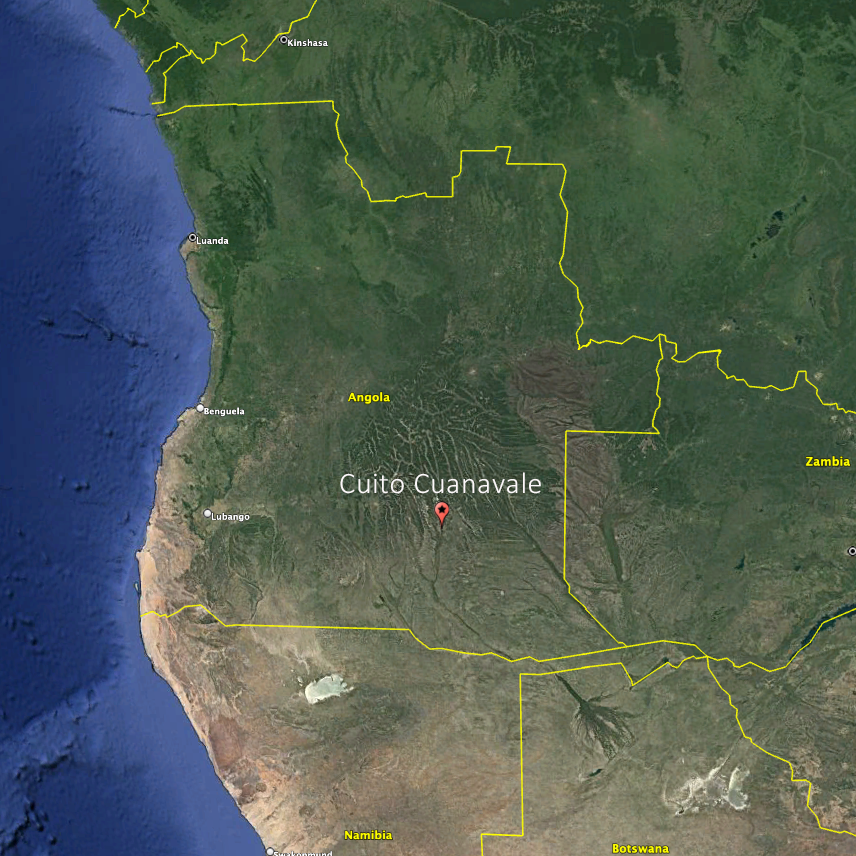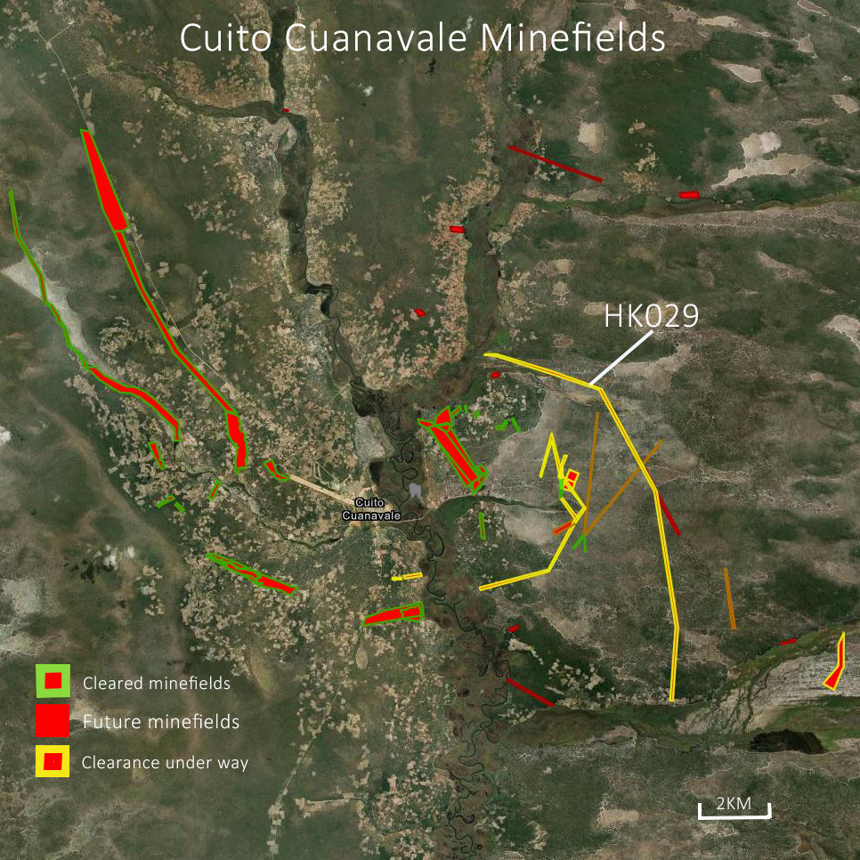Cuito Cuanavale is a small town with a major place in the history of Africa. It sits at the confluence of the two rivers – the Cuito and the Cuanavale – that give it its name. And was the site of the largest tank battle in Africa since World War II.
From August 1987 to 23 March 1988 forces from the People's Armed Forces for the Liberation of Angola (FAPLA) and advisors and soldiers from Cuba and the USSR fought against South Africa's military and soldiers of the National Union for the Total Independence of Angola (UNITA).
In the process tens of thousands of landmines were laid, making Cuito Cuanvale the most-mined town in Africa.


The impact of so many landmines has been to impoverish one of Angola's most isolated regions. Rock Capinãla, a HALO section commander grew up in the district and says: "My uncle had a mine accident in 2006 and lost his leg. We’re very grateful that he survived, but it deeply affected our family: we struggled to put together enough money to be able to afford his medical treatment and he was unable to work from then on, he couldn’t fish or farm. Emotionally, it was also a big shock to us."
Among many minefields around Cuito Cuanavale is one designated by HALO as HKK029 – one of the largest and most complicated minefields in the world. It is 18km - 20km long. Retreating South African forces and UNITA laid HKK029 following the battle.
The minefield consists of two to four lines of South African minimum metal anti-tank mines, spread on average 15 meters apart, protected by anti-personnel mines. HALO expects to find perhaps 35,000 mines in total, along with the added danger of claymores, anti-lift devices and mines linked together.
To mark the 35 anniversary of the end of the battle, 50 HALO deminers paraded at the memorial to the battle and were joined by Minister of State and head of Angola's Casa Militar, General Francisco Furtado, the Provincial Governor of Kunado Kubango José Martins and ambassadors and dignitaries from neighbouring African states.
HALO is clearing 153 minefields in Kuando Kubango Province, in which Cuito Cuanavale sits, with funding from the Angolan and US Governments. Hundreds of local people have been recruited, trained, equipped and deployed to finally clear mines from their land – 35 years after the Battle for Cuito Cuanavale.
The great wilderness of Kuando Kubango is home to two national parks and with the mines removed, the Angolan Government hopes to develop the region for conservation tourism as wildlife can return and be protected.








